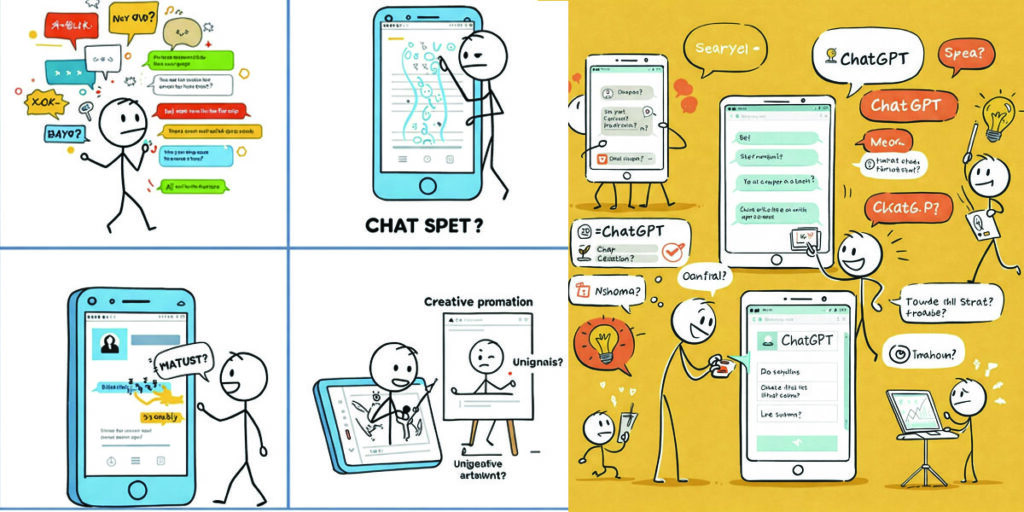GitHub Copilot is more than just an advanced code completion tool; it’s an AI-powered partner that has the potential to revolutionize the way software is developed. Its ability to understand context, generate code from natural language, and provide real-time suggestions can significantly boost developer productivity, reduce errors, and accelerate the development process.
While ethical considerations and potential challenges need to be carefully addressed, the benefits of embracing intelligent coding assistants like Copilot are undeniable. By leveraging the power of AI, developers can unlock new levels of efficiency, creativity, and innovation, ultimately shaping a more productive and exciting future for software development. As the technology continues to mature, GitHub Copilot and similar tools are poised to become indispensable companions for developers around the globe, helping them level up their code and build the software of tomorrow.
In the ever-evolving landscape of software development, efficiency and innovation are paramount. Developers are constantly seeking tools and methodologies to streamline their workflows, reduce repetitive tasks, and ultimately, build better software faster. Enter GitHub Copilot, an AI-powered coding assistant that has rapidly become an indispensable part of many developers’ toolkits. Trained on billions of lines of public code, Copilot acts as an intelligent pair programmer, offering real-time code suggestions, completing functions, and even generating entire blocks of code based on context and natural language prompts. This article delves deep into the intricacies of GitHub Copilot, exploring its functionalities, benefits, ethical considerations, and its transformative impact on the future of software development.
The Genesis of Intelligent Code Completion:
The concept of intelligent code completion is not entirely new. Integrated Development Environments (IDEs) have long offered basic autocompletion features, suggesting keywords and variable names as developers type. However, GitHub Copilot represents a significant leap forward, leveraging the power of large language models (LLMs) to understand the semantic context of code and provide far more sophisticated and relevant suggestions.
Developed by GitHub in collaboration with OpenAI, Copilot is powered by Codex, a generative pre-trained language model that has been specifically fine-tuned on a massive dataset of publicly available code from GitHub repositories. This vast training data allows Copilot to learn patterns, conventions, and best practices across a wide range of programming languages, frameworks, and libraries.
How GitHub Copilot Works: An AI Under the Hood:
At its core, GitHub Copilot operates by analyzing the code a developer is currently writing, along with any surrounding context, such as comments, variable names, and previously written code within the same file or project. This contextual understanding allows Copilot to predict the developer’s intent and offer relevant code suggestions in real-time, directly within the code editor.
The interaction with Copilot is seamless and intuitive. As a developer types, Copilot presents suggestions as grayed-out text, which can be accepted with a simple tab press. These suggestions can range from completing a single line of code to generating entire functions, classes, or even complex algorithms.
The underlying technology relies on a sophisticated interplay of natural language processing (NLP) and machine learning (ML). The Codex model has learned to map natural language descriptions and code snippets to corresponding code implementations. When a developer provides a comment describing the desired functionality, Copilot can often translate that natural language into functional code.
Furthermore, Copilot continuously learns and adapts based on the developer’s interactions. When a suggestion is accepted, Copilot reinforces its understanding of the developer’s coding style and preferences. Conversely, if a suggestion is rejected or modified, Copilot takes this feedback into account to refine its future suggestions. This adaptive learning process makes Copilot an increasingly personalized and effective coding assistant over time.
Unleashing the Power: Key Features and Functionalities:
GitHub Copilot boasts a rich set of features designed to enhance the coding experience and boost developer productivity:
- Real-time Code Completion: As developers type, Copilot provides intelligent and context-aware suggestions for completing lines of code, function calls, variable names, and more. This drastically reduces the amount of boilerplate code that developers need to write manually. For example, if a developer starts typing a function name like
calculate_, Copilot might suggestcalculate_averagewith the appropriate parameters based on the context. - Function and Block Completion: Copilot can often generate entire functions or blocks of code based on the function signature, comments, or the surrounding code structure. This is particularly useful for implementing common algorithms, data structures, or utility functions. If a developer writes a comment like
# Function to check if a number is prime, Copilot can generate a complete Python function with the necessary logic. - Natural Language to Code: One of Copilot’s most impressive features is its ability to translate natural language descriptions into code. By writing clear and concise comments describing the desired functionality, developers can instruct Copilot to generate the corresponding code in their chosen programming language. For instance, a comment like
// Write a function in JavaScript to fetch data from a given URLcan prompt Copilot to generate the necessary asynchronous code usingfetchorXMLHttpRequest. - Code Suggestions in Multiple Languages: Copilot supports a wide range of popular programming languages, including Python, JavaScript, TypeScript, Java, Go, Ruby, C++, C#, and many more. Its versatility makes it a valuable tool for developers working across different technology stacks.
- Contextual Awareness: Copilot goes beyond simple keyword matching by understanding the semantic context of the code. It considers variable names, function definitions, comments, and even code in related files to provide more relevant and accurate suggestions. This contextual awareness significantly improves the quality and usefulness of the generated code.
- Tabnine Integration (Optional): While Copilot itself is a powerful tool, it can also be integrated with Tabnine, another AI-powered code completion tool, to potentially enhance its capabilities further.
- Explain Code Snippets: Beyond generating code, Copilot can also help developers understand existing code. By highlighting a section of code and asking Copilot to explain it, developers can get a natural language explanation of its functionality, logic, and potential implications. This can be particularly helpful when working with unfamiliar codebases or trying to understand complex algorithms.
- Generate Unit Tests: Writing unit tests is crucial for ensuring code quality and reliability. Copilot can assist in this process by generating basic unit tests based on the existing code. While these generated tests might require further refinement, they provide a solid starting point and can significantly speed up the testing process.
- Suggesting Alternatives: Copilot can sometimes offer alternative ways to implement a particular piece of code, potentially introducing developers to more efficient or idiomatic solutions. This can be a valuable learning opportunity and help developers improve their coding skills.
The Benefits of Embracing an AI Pair Programmer:
The adoption of GitHub Copilot offers a multitude of benefits for individual developers and development teams alike:
- Increased Productivity: By automating repetitive coding tasks and providing intelligent suggestions, Copilot significantly reduces the time and effort required to write code. Developers can focus on higher-level logic and problem-solving rather than getting bogged down in boilerplate. Studies have shown that developers using Copilot can complete tasks significantly faster.
- Reduced Errors: Copilot’s suggestions are often based on well-established coding patterns and best practices, which can help developers avoid common errors and bugs. The real-time feedback and suggestions can also help catch mistakes early in the development process.
- Faster Onboarding for New Team Members: When new developers join a team or work on an unfamiliar codebase, Copilot can provide valuable assistance in understanding the existing code and contributing effectively more quickly. Its ability to explain code snippets can be particularly beneficial in this context.
- Exploration of New Technologies and Languages: Copilot’s broad training across numerous programming languages and frameworks can help developers explore and experiment with new technologies more easily. Its suggestions can provide guidance and accelerate the learning process.
- Improved Code Quality and Consistency: By suggesting code based on established patterns and conventions, Copilot can contribute to more consistent and maintainable codebases. This can reduce technical debt and simplify collaboration within development teams.
- Enhanced Focus and Creativity: By handling routine coding tasks, Copilot frees up developers’ mental capacity to focus on more complex problems, architectural design, and innovative solutions. This can lead to more creative and impactful software development.
- Pair Programming Benefits Without Scheduling: Copilot acts as an always-available pair programmer, offering suggestions and insights without the need for explicit scheduling or coordination. This can be particularly beneficial for remote teams or developers working asynchronously.
Navigating the Ethical Landscape: Considerations and Concerns:
While GitHub Copilot offers significant advantages, it also raises important ethical considerations and potential concerns that need to be addressed:
- Code Ownership and Licensing: Since Copilot is trained on public code with various licenses, questions arise regarding the ownership and licensing implications of the code it generates. GitHub has taken steps to address this by providing features that allow users to filter suggestions based on license similarity. However, developers need to be mindful of the licenses of the code they are using and ensure compliance.
- Bias and Security Vulnerabilities: The training data for Copilot may contain biases or security vulnerabilities present in the public code it was trained on. As a result, Copilot might inadvertently suggest biased or insecure code. Developers need to exercise caution and thoroughly review all generated code to ensure its correctness and security.
- Impact on Learning and Skill Development: Some argue that over-reliance on AI-powered code completion tools like Copilot might hinder the learning process for new developers and potentially lead to a decline in fundamental coding skills. It’s crucial for developers to use Copilot as a tool to augment their abilities, not as a replacement for understanding core programming concepts.
- Job Displacement Concerns: As AI tools become more sophisticated in generating code, concerns about potential job displacement for software developers have emerged. While it’s unlikely that AI will completely replace human developers in the near future, the role of developers may evolve, requiring them to focus more on higher-level tasks such as design, architecture, and problem-solving.
- Dependence and Reliability: Over-reliance on Copilot could create a dependency, making it challenging for developers to work effectively without it. Furthermore, the quality and accuracy of Copilot’s suggestions can vary, and developers should not blindly accept all generated code without careful review.
The Future of Development with AI Assistance:
GitHub Copilot represents a significant step towards a future where AI plays an increasingly integral role in the software development lifecycle. As AI models continue to evolve and improve, we can expect even more sophisticated and intelligent coding assistants to emerge.
The integration of AI into development workflows is likely to lead to further automation of routine tasks, allowing developers to focus on more complex and creative endeavors. AI could also play a more significant role in code analysis, bug detection, performance optimization, and even collaborative development.
However, it’s crucial to approach this future with a balanced perspective, acknowledging both the immense potential and the ethical considerations that come with AI-powered tools. Developers will need to adapt to these new technologies, embracing them as powerful aids while retaining their fundamental skills and critical thinking abilities.
GitHub Copilot is more than just an advanced code completion tool; it’s an AI-powered partner that has the potential to revolutionize the way software is developed. Its ability to understand context, generate code from natural language, and provide real-time suggestions can significantly boost developer productivity, reduce errors, and accelerate the development process.
While ethical considerations and potential challenges need to be carefully addressed, the benefits of embracing intelligent coding assistants like Copilot are undeniable. By leveraging the power of AI, developers can unlock new levels of efficiency, creativity, and innovation, ultimately shaping a more productive and exciting future for software development. As the technology continues to mature, GitHub Copilot and similar tools are poised to become indispensable companions for developers around the globe, helping them level up their code and build the software of tomorrow.




















